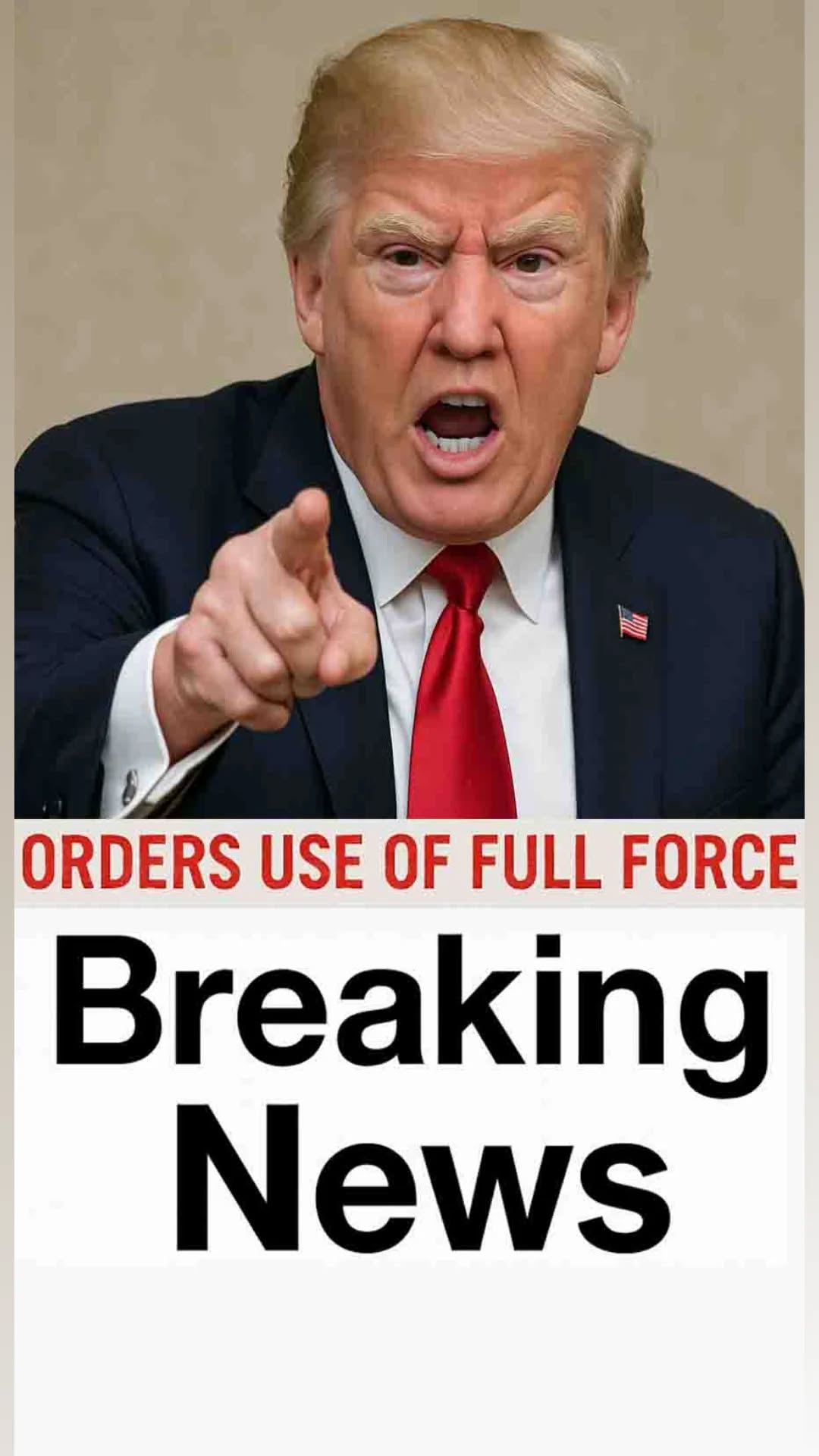Donald Trump Orders Use Of Full Force
On *September 27, 2025, President Donald Trump declared that he would send U.S. troops to *Portland, Oregon, authorizing them to use “full force, if necessary” to counter what he called “domestic terrorists” and to defend federal immigration facilities.
The decision marks an escalation in the administration’s approach to domestic unrest and protest, as Portland becomes yet another city targeted for federal intervention.
What Trump Said — and His Rationale
* In a post on his social media platform, Trump ordered Defense Secretary Pete Hegseth to “provide all necessary Troops” to protect what he described as “war-ravaged Portland” and to guard ICE (Immigration and Customs Enforcement) facilities he claimed were “under siege from attack by Antifa and other domestic terrorists.”
* He framed the deployment as a necessary step to suppress violent protest and protect federal property.
* Trump’s language echoed earlier moves: under his administration, federal forces or the National Guard have already been deployed in cities like Los Angeles, Washington, D.C., and Memphis.
* Legal observers note that such deployments may invoke or push the boundaries of the *Insurrection Act of 1807*, which allows the president to deploy troops domestically under certain conditions (e.g. in cases of insurrection or when states are unable to enforce the law).
—
Pushback from State and Local Officials
The announcement was met with strong resistance from Oregon’s political leadership and Portland’s city government:
* *Governor Tina Kotek* rejected Trump’s justification, saying the city is “just fine” and that there is no current mission for federal troops. She accused the president of abusing his authority.
* *Portland Mayor Keith Wilson* likewise opposed the plan, arguing the city does not need troops and challenging Trump’s characterization of Portland as lawless.
* Some local business and civic leaders also pushed back, insisting local law enforcement and city institutions are capable of managing public safety concerns.
* The Portland area currently is not experiencing the widespread unrest implied by Trump’s rhetoric—many observers say protests in recent months have been limited and largely peaceful.
* Notably, as of Trump’s announcement, neither the Oregon National Guard nor local police forces had received formal deployment requests for additional federal forces.
—
Legal and Constitutional Questions
This move raises several thorny legal and constitutional issues:
1. *Posse Comitatus Act*
Under the Posse Comitatus Act (1878), federal military forces are generally barred from executing civilian law enforcement within U.S. borders. Any domestic deployment must have a clear statutory basis or an exemption.
2. *Insurrection Act*
The Insurrection Act provides one exception, enabling the president to deploy troops domestically under severe conditions (e.g. insurrection or when states cannot maintain order). But invoking it requires procedural steps and a legal justification.
Critics argue that the threshold has not been met in Portland—that there is no insurrection or breakdown of law and order warranting such a measure.
3. *Federal vs State Authority*
The U.S. Constitution reserves certain powers to states, including law enforcement and public safety within their borders. Introducing federal troops into a state or city without the state’s consent risks infringing on state sovereignty.
4. *Precedents and Court Rulings*
Trump’s previous deployments (e.g. in Los Angeles) have already faced legal challenges: in California, a federal court ruled that the Trump administration’s deployment violated Posse Comitatus because there was no insurrection or evidence local law enforcement was incapable of responding.
Legal scholars warn that the Portland deployment is likely to be contested in court, potentially leading to injunctions or rulings curtailing the use of troops for domestic policing.
—
Political and Symbolic Dimensions
Beyond law enforcement, this move is laden with political symbolism:
* Trump has long cast himself as a tough “law and order” figure, and deploying troops to cities is a dramatic demonstration of that posture.
* Labeling protestors or dissenters as “domestic terrorists” or “insurrectionists” escalates rhetoric and frames opposition as a security threat, not a political debate.
* The move could deepen polarization: supporters may see it as necessary to restore order; critics will view it as executive overreach or authoritarianism.
* For local residents and activists in Portland, the threat of military presence bears psychological weight—raising fears of escalation, civil liberties violations, and confrontation with already tense policing dynamics.
* The timing—coming after Trump’s broader actions to deploy federal forces in other cities and his executive orders targeting protest groups—suggests a pattern and strategy rather than a one-off response.
—
What Happens Next — Possible Scenarios
1. *Court Battles and Injunctions*
Local or state governments may sue to block deployment, arguing violations of federal law or constitutional rights. Courts could issue restraining orders. (Such a path was taken in California and other jurisdictions.)
2. *Partial or Limited Deployment*
To reduce legal risk, the administration might deploy only National Guard forces under state control or restrict troops to protecting federal property (rather than general policing).
3. *Political Escalation*
Oregon’s government may mobilize legal and legislative pushback, call for congressional hearings, or coordinate with other states resisting similar federal interventions.
4. *De-escalation or Retreat*
If public pressure, legal obstacles, or internal logistics make such a deployment too costly, the administration may pull back or scale down its plans.
—
President Trump’s decision to send troops to Portland is a bold, controversial move with far-reaching legal, political, and social implications. It crystallizes the tension in American federalism: how and when the federal government can assert force within states, and how it balances maintaining order with protecting civil liberties.
